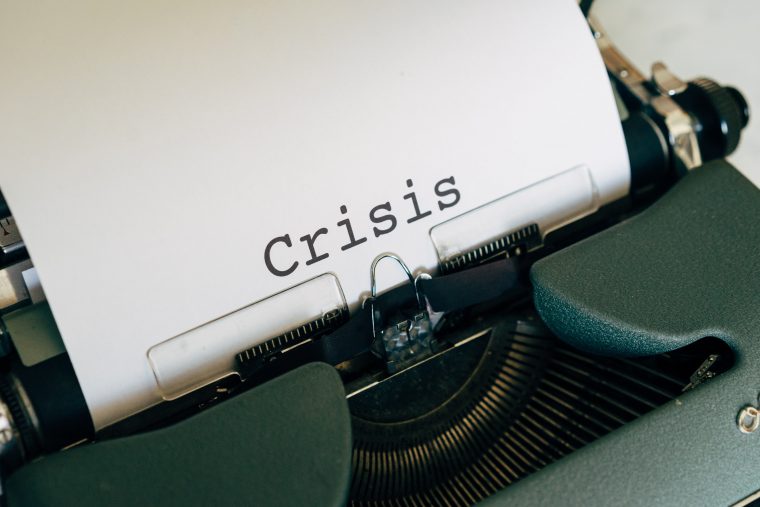
Hamzah was one of the few Malaysian students selected for a scholarship to study in the United States.
A scholarship awarded for his savvy school results, the Malaysian government under the Public Service Department (JPA) sent Hamzah, a kampung boy from an okay family along with other deserving students to pursue their dreams, in hopes of coming back with a scroll and a chance for a change.
And with a scroll, he came home, only to see his hopes crushed to the very bits when he couldn’t land a job. He tried high and low, up and down offices and buildings just to be turned away.
In the end, he settled for a job he didn’t even plan.
A job that needed no American degree and yet he couldn’t do anything about it. Because it was 1985 and Malaysia just fell into its first major recession, post-independence.
The First Gawat!

[Ga.wat] critical, strenuous, tensed, catastrophe.
Malaysia went through not one but three major economic crises or kegawatan ekonomi.
The first was the Commodity Shock in 1985, the year Hamzah and thousands of hopeful Malaysian students got unlucky.
Macroeconomic policy in post-independence Malaysia was a continuation of the British tradition of fiscal prudence where the government spendings were confined to domestic revenue expansions. But the Volker shock (US high-interest rare policy) triggered a massive collapse of the global commodity trade and Malaysia was one of the victims. Our economy was reduced by 1% and unemployment increased to 8%. The government then reduced state spending and shifted towards the private sector among other measures to cure the economy.
It worked but public debt overhang continued a decade later.
The Second Gawat!

Right when we were bouncing off from the first wave, the Asian Financial Crisis came.
It was 1997, guys like Hamzah have started to get comfortable with what’s going on. The moment when they were witnessing the country strike the first sign of progress with the construction of the PETRONAS Twin Towers, nobody thought this would come.
In July that same year, the floating of Thai baht sparked a crisis that brought down the whole East Asian continent.
Our economy was solid but also vulnerable to speculative attack. Details aside, the crisis also brought down our Ringgit to its lowest against the USD. One of the key measures Putrajaya took was to peg the Ringgit and injected a RM2 billion fiscal stimulus package (sound familiar?) as a response.
We recovered, but it took us about three years to do so.
The Third Gawat!

The journey to recovery was long and hard but again, we were hit with another fallen rock from the sky. The Global Financial Crisis in 2008 wasn’t something we could avoid.
The US housing market triggered the bursting of a speculative bubble and our trade and investments were deeply impacted. Share prices and exports fell and the economy contracted 1.7% so the government had to release two fiscal stimulus programmes (RM67 billion) to respond. Bank Negara Malaysia (BNM) cut interest rates three times to lower the Overnight Policy Rate (OPR) to 2% and luckily enough for Hamzah with his growing family, Malaysia bounced back pretty quick from this.
The Fourth Gawat?

Like it or not, today’s experts and economists are forecasting a prolonged economic decline in Malaysia.
Few have proposed the right term but most would agree that what’s looming is yet again another economic recession, something we have faced in the past, just in a different form.
In Q1 our GDP grew to only 0.7% when it was initially expected to grow up to 4.2% but the worst has yet to happen – analysts believe that Q2 would be much worse since the economic activity was practically non-existent during MCO and IF the growth keeps going south for Q3 – we have officially entered the definition of a recession.
What Does it Mean for Me?
You may not be interested in GDP talks but for the average Hamzah, Henry or Helena of today, a recession would mean the country you’re living in and the people around you may be going through a tough time for an extended period of time.
For starters, we can’t save much during a recession. Our savings like Fixed Deposits (if we have one), for example, may be reduced to much lower interest rates due to slashed OPR. That aside, with a high number of Malaysians now facing either pay cuts, retrenchments or layoffs, the chances of saving are pushed to almost none while the chances of you breaking that piggy bank seem closer and closer each day.
With recession also comes the struggles of paying off debts. With reduced salaries or even worst, unemployment, it’s just almost impossible to have a good payment record especially with liabilities like credit cards or decreasing assets like cars. Sure we have to moratorium but do remember that we only have about three months before it ends. And then we’re on our own.
For companies, big or small, the rational thing to do would be to freeze hiring. That goes for salary increments too. This would mean a slimmer chance for a graduate to get a job and a slimmer chance for you to change jobs. A recession will hinder (or stop) wage growth and this is something that will be stretched for a year or so. Benefits, allowances will see bigger cuts and perhaps a complete stop while policies like unpaid leaves and pay cuts will be something not uncommon if it isn’t already so.
Now What?

Time to move forward and look at the bright side, of course!
Let’s try to be positive. 2020 still is a glass half full and even though an economic downturn is about to happen, there’s no reason for you to just wait and bleed. In fact, even without a recession, these tips above will always come in handy to upgrade your situation:
1) Personal (Financial) Plan
Initiate a personal financial plan and if you already have one, stick with it.
Recession for better or worse will happen. The good thing is it’s short-term in nature. The past three economic crises lasted years shorter than most mortgages, something you already projected and planned. Sure, some adjustments need to be made but stick with the same saving, investment you’ve been doing all this while.
2) Pay Off All Debt
Though this might sound like wishful thinking, the loss of income would be much easier to deal with lesser loans to pay. If you can’t pay off all your debts, settle for as much as you can so when the going gets rough, you’ll be less shaky.
3) Keep Cash, Lots of Cash
Having an emergency piggy bank is one of the best advance preparation for trouble. Though it may only cover small financial problems, emergency situations are something one would not expect coming so keeping cash at bay, tucked safely somewhere is never old school, it’s smart.
4) Shop for Financial Products
Right now, the slashed OPR (and interest) rates may look easy on the loans but they’re also dim news for your investments. However, banks have recently started to offer high-interest rates for saving accounts and fixed deposits. Banks such as OCBC, RHB and Alliance have their own terms to offer but look around, there’s bound to be one to fit your need.
5) Hustle on the Side
This may not apply to each and every one of you but we all have talents that we may or may not realise. You may be a social media strategist with skills but that talent of crafting bouquets might actually come in handy in times of need. In fact, even without a recession, you should always try to explore what you can do with you secondary talent. Some people found their calling late in their years but it’s never too late to start.
6) New Skill Uploading in 3, 2, 1
Unlock your skills from 1 to 10. Good if you’re still employed but for those fresh of a layoff, this is actually the best time to turn things around and upskill your skills! There are a lot of incentives and assistance from the government made especially for this. Read our previous story on job-seeking assistance and talent upgrading aid HERE. With a RM2 billion fund to set up a number of programmes under the PENJANA plan, there couldn’t be a better time to move your behind.
Recession Will Come and it Will Go
Just like the past three crises, this recession will definitely come but Malaysians somehow are a very strong-willed bunch. Like Hamzah and his journey from having a useless degree to surviving three recessions.
Go home and ask your parents how they survived not one but THREE major economic crises yet they managed to raise you to where you are now with a paycheque much smaller than yours. Perhaps, this would put things into perspective?
Talking about financial plans, word has it that people are talking (or cussing) our high electricity bills. Our advice, make use of the Easy Payment Plan, read about it HERE. Plus there’s a new TNB announced by Putrajaya this week.








